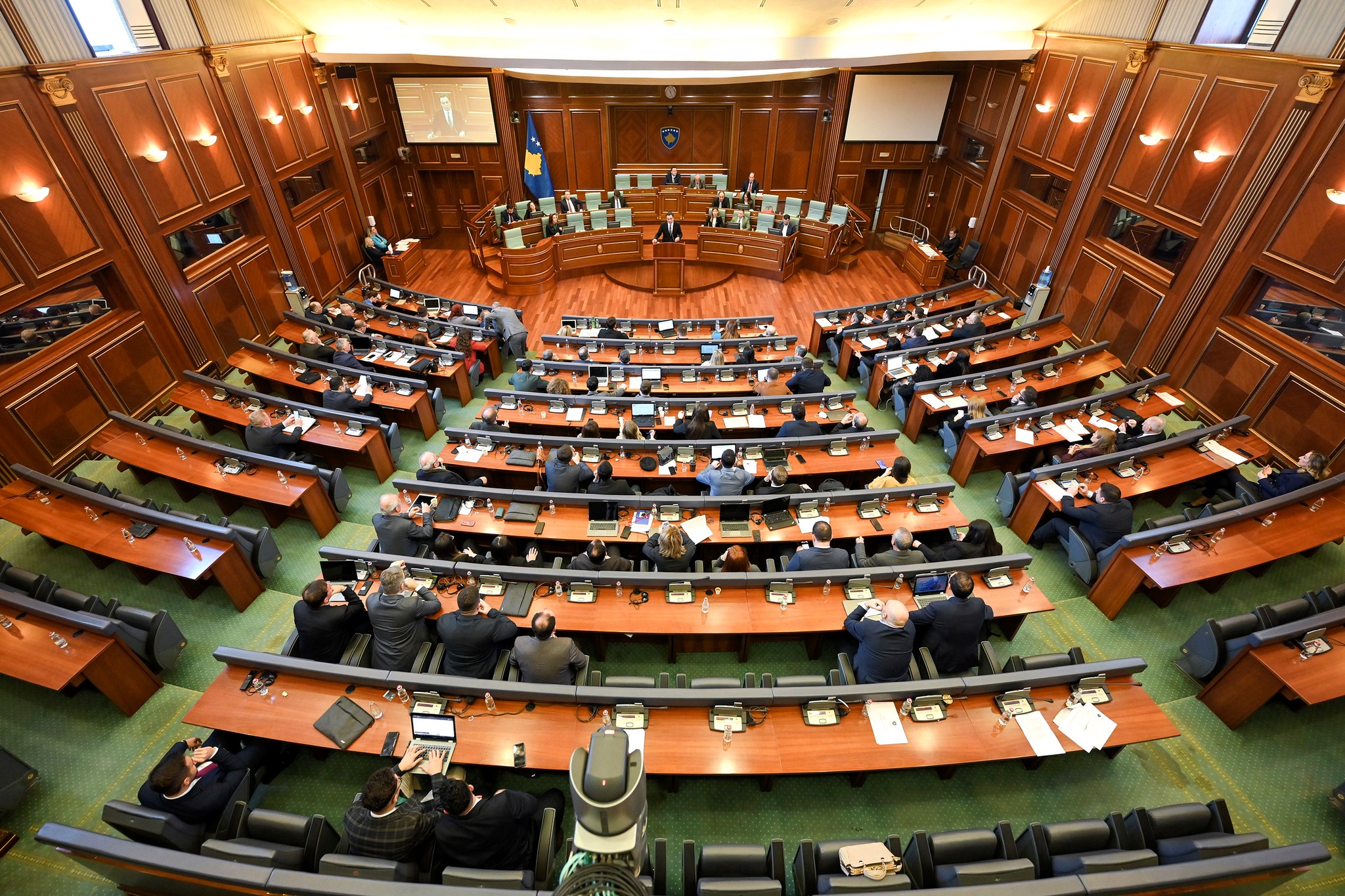Kosovo stuck in political deadlock after eighth failed attempt to elect speaker

Photo: Assembly of the Republic of Kosovo.
Kosovo’s post-election political stalemate continues, as Prime Minister Albin Kurti’s party, despite winning the most votes in the February 9 elections, remains unable to secure the necessary support to form a government or elect a speaker of parliament.
Why this is important: The prolonged impasse—heading into its ninth attempt to constitute parliament—threatens to paralyze Kosovo’s political institutions and raises the real possibility of new elections. Despite dominating the polls, Kurti’s Vetëvendosje party has failed to gather enough parliamentary support to elect Albulena Haxhiu as Speaker, the first step required for forming a new government.
Context: During a visit to Istog, Kurti avoided giving a clear answer on whether his party had secured the votes needed to break the deadlock. Smaller parties that trail Vetëvendosje in the election results have consistently refused to back Haxhiu, arguing that it is the winner’s responsibility to gather the necessary votes. Some have instead proposed a consensual candidate as a compromise.
Nonetheless, Vetëvendosje continues to insist on Haxhiu’s nomination despite lacking the majority needed. While Kosovo’s constitution allows at least 10 MPs to petition the Constitutional Court for clarification on such procedural issues, no opposition members have taken that step so far.
What’s next: The next attempt to convene parliament is scheduled for Thursday. If it fails, political parties are not ruling out the option of fresh elections. Meanwhile, members of parliament continue to receive their salaries, which began accruing from their swearing-in on April 19, despite holding only symbolic one-minute sessions every 48 hours to maintain procedural formality.
The political stalemate highlights deeper divisions in Kosovo’s political landscape and the challenge Vetëvendosje faces in converting electoral victories into effective governance.


